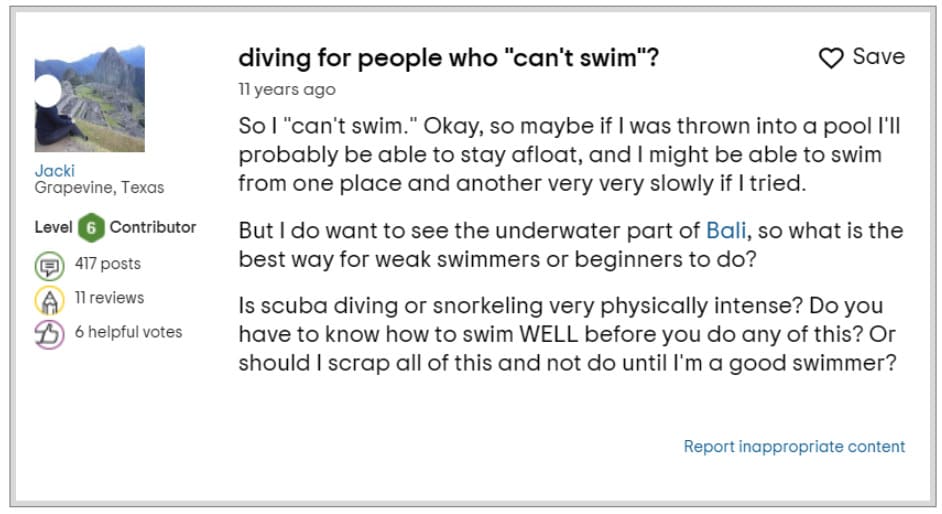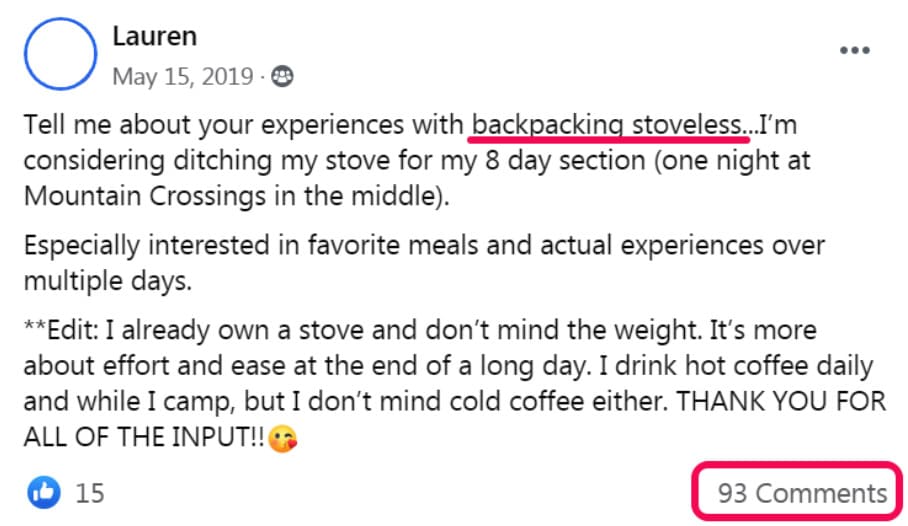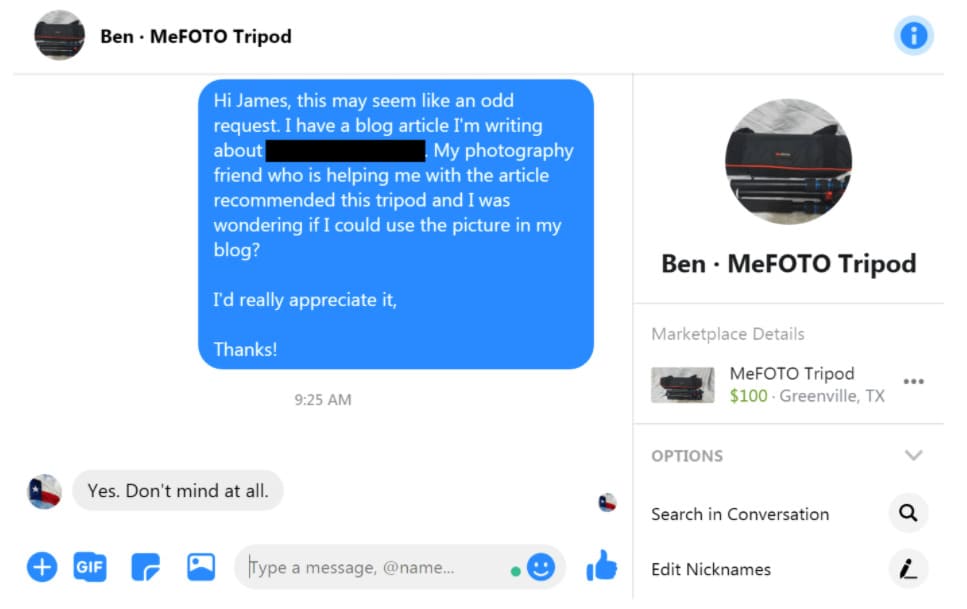I asked my friend, Ben Adler, to write this post. He’s been featured on my YouTube Channel and podcast, and he has a blog over at Affiliate Niche Builders. Check out his popular Facebook group if you want to connect further.
I’ll admit, this title makes me cringe. Often when people ask, “how do I write an SEO article?”, it seems they are often looking for some special SEO trick or to know the perfect keyword density.
But I get what these people are asking. They are looking to learn how to do keyword research and on-page optimization to make sure their article ranks.
While it is important to have Google better understand your articles, a lot of times people are too focused on SEO tricks rather than learning to write quality content that conveys expertise, authoritativeness, and trustworthiness.
If you’re not familiar, Expertise, Authoritativeness, and Trustworthiness, commonly called EAT, is a fairly recent buzzword in the SEO community and is often misunderstood. If you haven’t yet, I suggest you look at Google’s Search Quality Evaluator Guidelines which will tell you specific characteristics Google wants to see in high-quality pages and sites.
There’s lots of discussion on EAT. Some of it useful, such as having good bios, privacy and legal pages, and linking to reputable sources. But really, these tips are quite basic and none of them are going to cover what I’m about to share with you.
And what I’m about to share with you is how you can write SEO articles like an expert. I’m going to be sharing a lot of secrets I don’t share too often publicly to quickly find expert content that Google will love.
Find Keywords with Known Search Intent
What I often see beginners struggle with is they write about some random topic and then go back and “optimize” it for SEO. Right before they are about to hit publish, they find related keywords and sprinkle them in their article. While this can work if they get lucky, they often miss the fact that SEO starts way before they even start writing.
The key here is to write about topics people are actually searching for. This is afterall, the entire purpose of a search engine – to help people find answers. So if you want to rank and get traffic, you need to find low competition keywords to focus your entire article on. You can’t write about any topic you want. This is a crucial difference between blogging for fun and blogging for profit.
Doug has written plenty about how to find low competition keywords using the Keyword Golden Ratio method, so I won’t be covering that aspect specifically in this article.
Keywords are obviously important, but you can’t just take a keyword and start writing. What I often see writers do is write about topics and stuff in any piece of “related” content just to make their article longer. Even if they have good information, their search intent is off.
Before you start writing, you need to understand the search intent of your keyword. The best way to define search intent is with a question, and that’s, “what is the user really looking for when they search for this keyword?”.
Users are searching for very specific questions and it’s our job as publishers to answer them. Anytime I start writing an article, I ask, “what specific problem does this article help solve?”. If you can’t answer that question, it’s a good sign you picked a poor keyword or you don’t understand the search intent.
And it doesn’t stop there. Besides knowing what the user is really looking for, you need to know why they are looking for it. This is vital to understanding your audience intimately and will help you write article introductions that connect with your audience and force them to keep reading.
This may all seem like theory right now, so I’ll show you amazon affiliate websites.
One keyword I found is, “snorkeling without knowing swimming”, which gets 90 searches per month according to Keyword Everywhere. If you Google this keyword, you can see several forums on the first page of the search results – a great low competition keyword!
Now, this query may seem like a weird question to ask. Why would someone search for “snorkeling without knowing how to swim?” It may seem odd, but after doing some quick research, everything makes sense.
If we search forums for this keyword, we can find many people asking this question. These people are going on vacation and want to experience the beautiful water in other parts of the word. For them, this is often a once in a life-time experience that they don’t want to miss.
Here’s a sample post I found in the search results:

Just from this short post, we can gather a lot. We not only understand their primary question and related questions, but we have insight into their situation and concerns. Knowing this information will now allow us to write a killer introduction and an article that solves a real problem. Not only that, but we have some great copy to model in our article.
So after knowing all this, what is the right way to include keywords in your article? Does keyword density matter? As a general rule, I like to use keywords in a natural way. Longer, more specific, and more complicated keywords are going to be used naturally less often than shorter, more broad keywords.
Think of it as a real life conversation. If the keyword is “when is it too hot to walk dogs on pavement”, it would sound weird to use that exact phrase over and over again in your article. This is what Google calls keyword stuffing and it’s not a good thing. For this particular keyword, I would perhaps use it 2 or 3 times in an article. I would then include related keywords such as “pavement too hot for dogs”.
However, shorter and broader keywords are going to naturally be mentioned more. A keyword like “hamster names” might be included a dozen or more times in an article and sound great. This is why I personally don’t pay attention to an exact keyword density, though It’s still important to make sure your keywords are being used and to help Google better understand your website.
Marty has also written a great guide on how to include secondary keywords in your seo articles that goes more in-depth.
Pro Tip: Brett from Instinct Marketing said, “One tip for a beginner SEO is to outline your article in a very detailed way before you write it. SEO is a very complex process that requires great attention to detail if you are to succeed.”
Pro Tip: Another Level to Finding Keywords With Known Search Intent
Mimi McFadden of The Atlas Heart said, “In terms of finding keywords with known search intent, another SEO hack is to put your main keyword into Google search. There are usually questions (the people also ask section) for most queries in the search result, as well as a section with related search topics at the bottom of the page.
Include the answers to the top questions in your article and any of the related search topics that are relevant to what you’re writing about for some extra SEO ranking power.
Do Proper Research
What seems prevalent with beginner writers is that they read a few blog posts and summarize all the key points to create a new article. This can work in some cases if you are using the Skyscraper Method, but if you’re not careful, it’s a great way to get watered down content.
The internet is filled with blogs that copy blogs that copy blogs. This means if you want to stand out, you need to do deep and unique research. Just because your article is plagiarism free doesn’t mean it contains original information. An easy way to tell is to ask yourself, “Is this information easily found online?”. If the answer is yes, you’re not winning any points when it comes to demonstrating EAT.
So, how do you find unique expert information for your article if you’re not an expert?
The best way I found is to listen to other experts. When I say “expert”, I don’t mean people with a degree or a certain profession. I mean what are called “everyday experts”. These are people who are familiar with their niche and can offer their real world experience. Someone who has been playing tennis for as little as a few years will be considered an expert to someone who is just starting to learn about the sport.
To find these experts, you don’t need to travel far. The internet is filled with forums and Facebook groups where thousands of questions have been asked and answered. Facebook groups especially are a goldmine. I suggest joining a dozen Facebook groups related to your niche and using the search feature to find discussions related to your keyword. You might even want to pose your own question to the group. You can even quote members in your article.
Here’s an example when searching for the keyword “backpacking stoveless”. This post has 93 comments!

Another little known tactic is physical books. There’s so much focus now on using the internet for research and “everything is online” that books are often ignored.
The reality is that books are often great resources for research. They contain real expert information and insights that are tough to find online. One thing to be aware of is that books can contain outdated information, so keep that in mind. In either case, books can be a great supplement to your online research. And with how cheap you can buy used books from Amazon, it’s worth the investment (and bonus points if you enjoy your niche).
The takeaway here is to do unique research to find expert information. The more detailed answers you can provide your readers, the more they and Google will see you as an expert in your niche. Information that comes from real world experiences is what build’s trust and authority.
Pro Tip: Use Google Search Console
Find Relevant Studies
If you really want to demonstrate EAT in your SEO article and earn backlinks naturally, summarizing relevant studies can be a game changer.
Why does this work so well? Because in many cases, studies are cited by others to help prove or better express a point of view in a more factual way. Brian Dean from Backlinko has listed studies to be one of the most effective pieces of content for generating more backlinks. Not only that, but it helps social shares as well.
If you don’t think there are any relevant studies in your niche, think again. There are so many different studies out there about anything and everything. Some manufacturers even pay companies to do independent research on their products. These are an absolute goldmine to help with conversions in your review or best of articles. If you have a study that proves a certain product is superior in some way, buyers will choose it more often.
So how do you find these studies and how do you use them? Here’s an example…
Say you are in the rock climbing niche and want to write for the keyword “does rock climbing burn fat”. Again, a great low competition keyword to target!
We would search for: does rock climbing burn fat “study” site:*.gov. What this query does is searches all the .gov websites that contain the word “study” along with our keyword. What we find back is one such study titled “Effects of Rock Climbing Exercise on Physical Fitness among College Students” which claims that rock climbing has no effect on body fat percentage, but has a huge effect on the increase in “Handgrip strength, Lower limb pedaling power, Vertical Jump, Push-Ups, Pull-Ups, Sit-Ups, and Sit-and-reach VO2max”.
If you were to put these findings into an article, we could incorporate it into a nice looking table, visual chart, or even an infographic. Canva.com is a great free tool for creating such visuals. This can then be shared on Pinterest and your favorite social media outlets.
Finding and compiling such information does take work, but you can be sure 99% of your competitors aren’t willing to do this effort, giving you an edge and a better chance of earning links naturally.
Pro Tip: Kevin from The Word Counter said, “Publish posts that are at least 1,500+ words in length. Google likes to see long-form content and consistently ranks it higher.” He added, “Make sure to use images and subheaders to break up the content and help the reader.”
Pro Tip: Kolleen of Shallcross Marketing & Design said, “One of the first mistakes that a writer makes when working on SEO is targeting the same keywords on different pages. This dilutes your SEO juice and you do not rank as well as you can.” So be sure to group very similar topics together.
Find Unique Images
While finding unique images for your blog posts isn’t a direct SEO factor, it is a huge factor in establishing EAT.
If you’ve ever come across an Amazon review website with product stock photos, you can immediately tell they didn’t actually review those products. If you’re reviewing a specific product, this can significantly reduce your conversions compared to authentic photos.
Authentic photos show readers that you have real-world experience with the product and that your review is authentic.
But how do you get authentic photos if you haven’t actually reviewed the product?
Again, one of the best places to go to is Facebook. Facebook marketplace is filled with people selling all sorts of things. All you need to do is find the seller and ask if you can use their photos in your blog. As a tip, you can search in popular locations such as New York City instead of your home town.
Here’s an example of me getting permission to use a photo of a tripod:

Besides Facebook, you can browse other market places such as Craigslist and Ebay. I find Facebook to be the best to use.
So when you are writing your post, especially when it comes to products, toss in a few authentic images to increase trust with your readers.
Key Takeaways
Writing an SEO post is much more than writing for Google. Google is only getting more and more sophisticated when it comes to finding what users want. SEO tricks that work today might not work tomorrow. This is why it’s so important to start focusing more on readers.
In the long run, it’s not enough to throw together articles. If you want to stand above the rest, create a long term brand, and establish EAT with Google, you need to be putting out real content.
You don’t need to become an expert in your field, but you should strive to create expert content. What does this mean? It starts with proper keyword research, understanding search intent, doing original research, and including authentic images.
So next time you’re writing an SEO article try out some of these tactics. You may be surprised at how effective they can be.